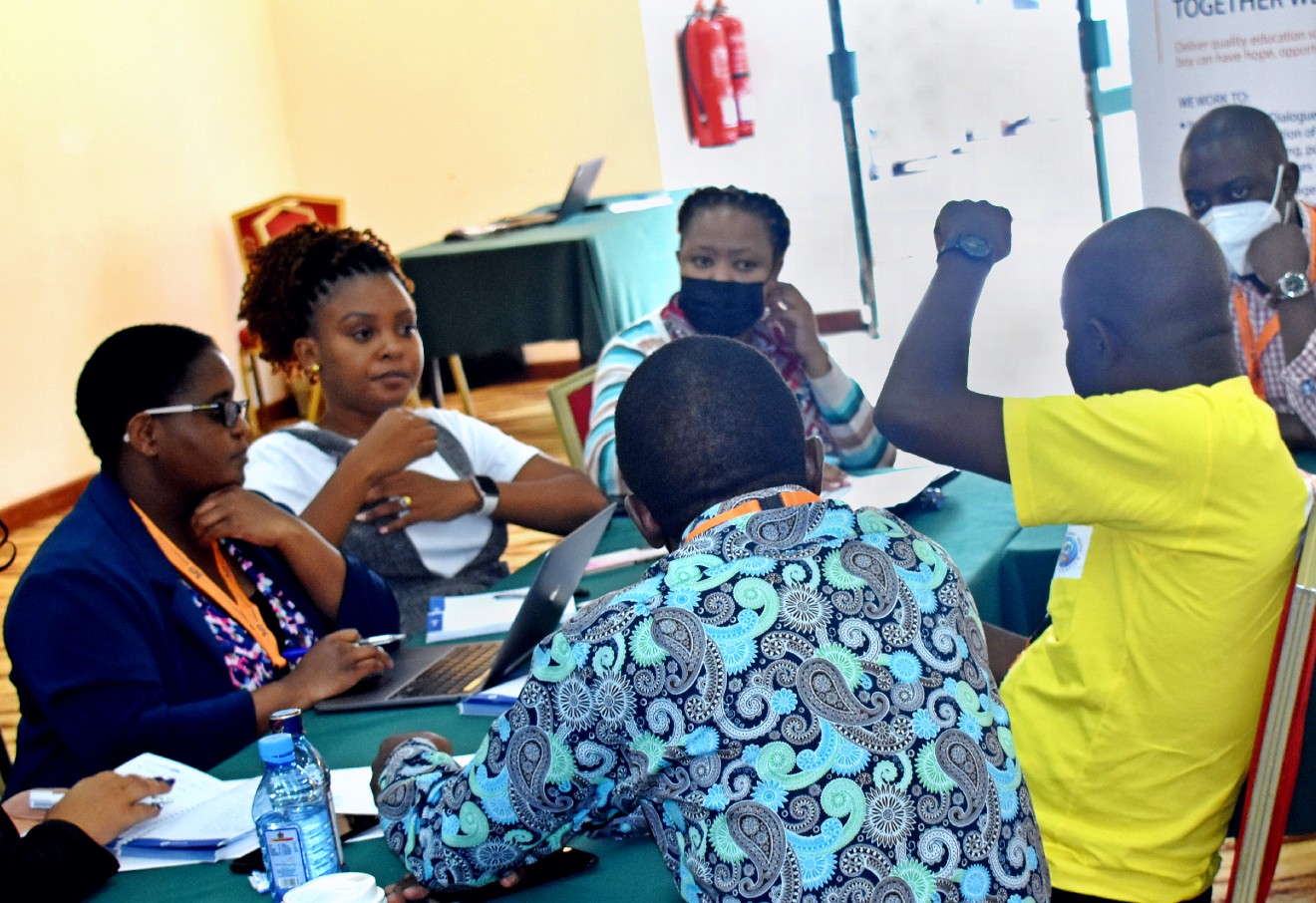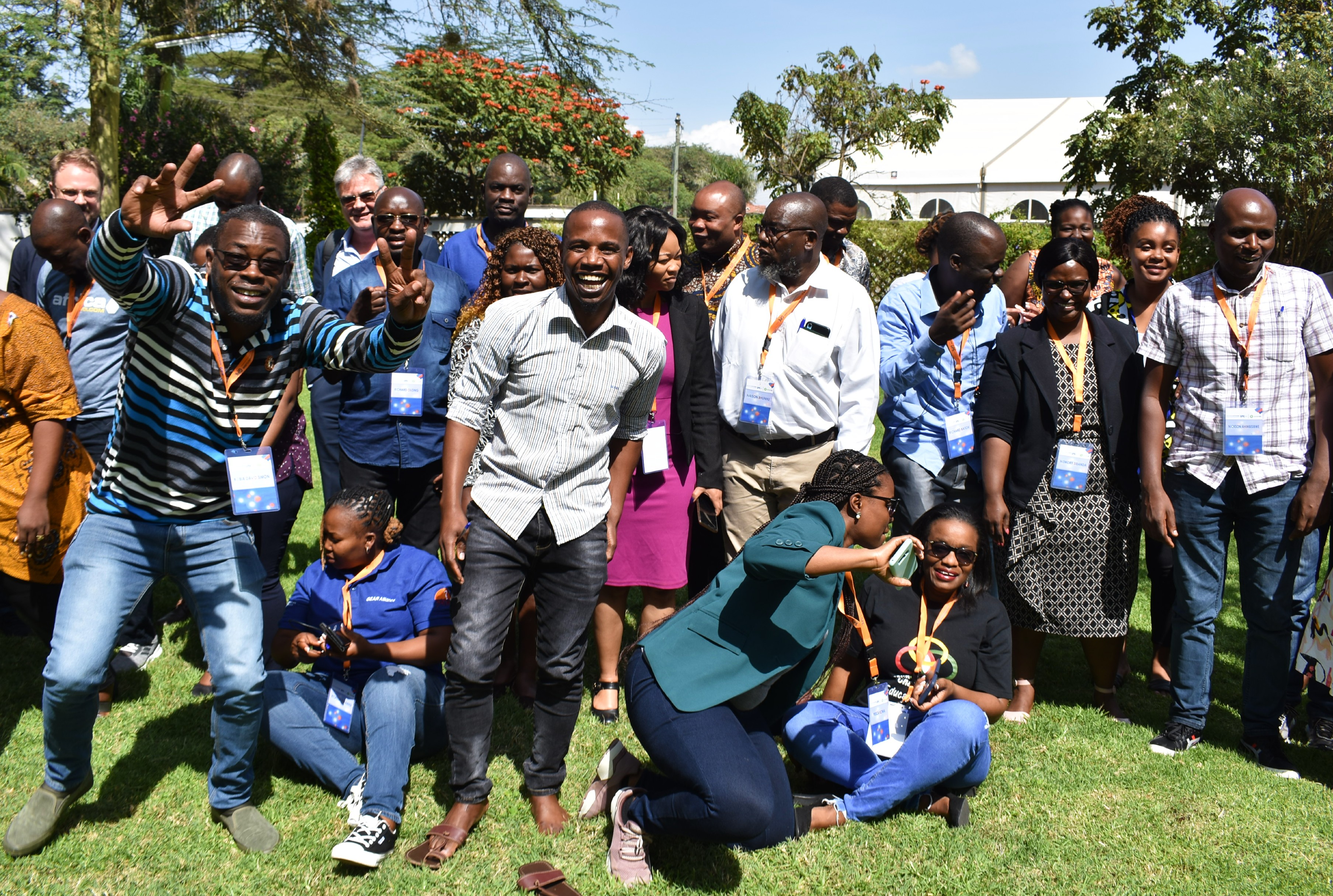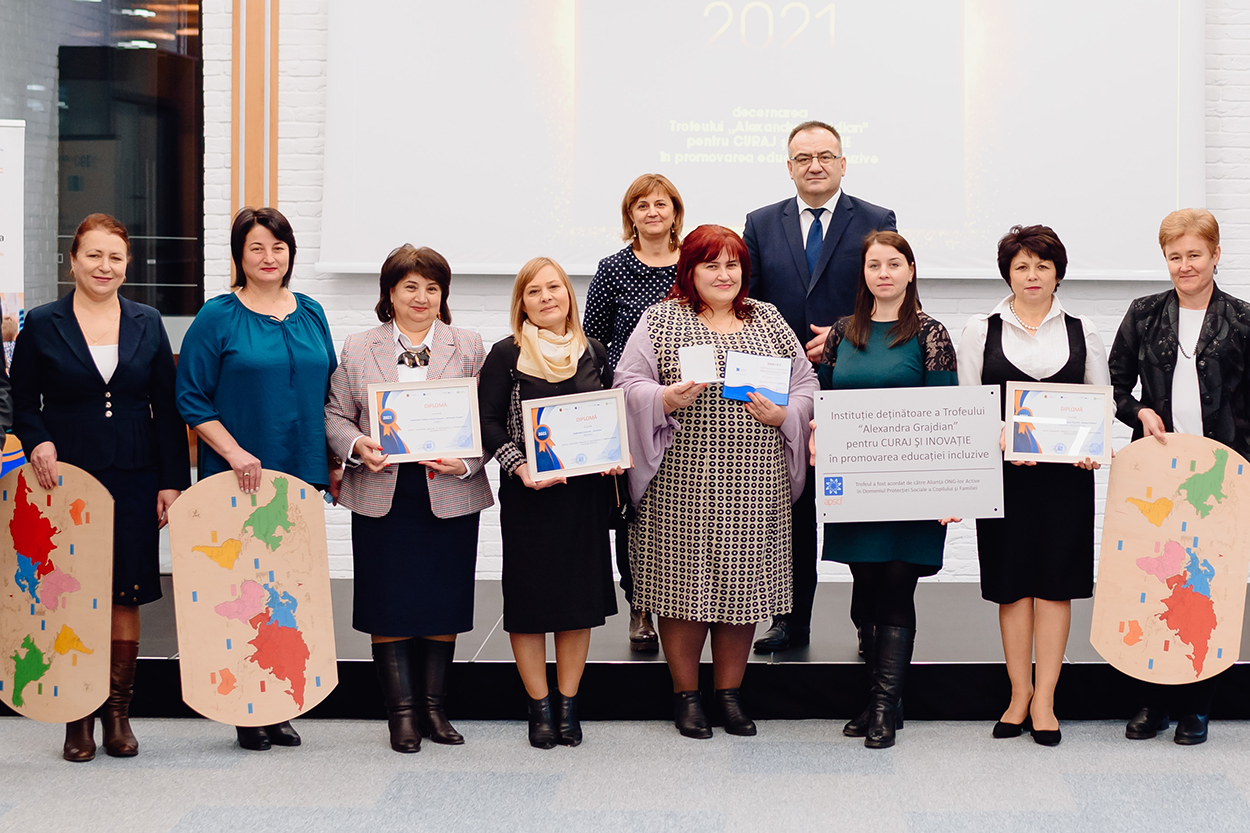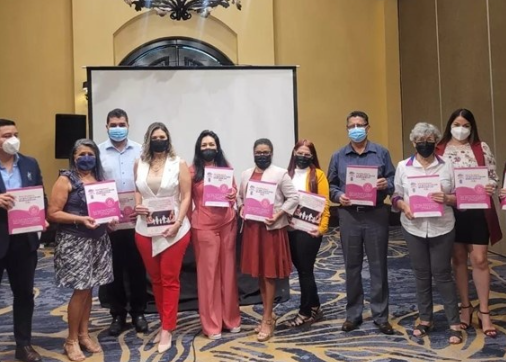What we learned in Nairobi
The Education Out Loud program has the clear intention to cultivate a learning culture among its grantees and promote application of knowledge learned for adaptive management in day-to-day operations.
Learning can be achieved through capacity building and through knowledge that is passed on by experts, but it is as valuable to learn from the hands-on experience of colleagues—how they have tried and failed and adjusted their approaches. For this reason, sharing experiences and lessons from project implementation was one of the most awaited agenda points when 31 partners from the Horn, East and South Africa (HESA) Region met in Nairobi in May 2022.
We have gathered some of the key takeaways from 10 presenting partners and encourage you to reach out to them if you want to learn more.
Civil Society Education Coalition (CSEC) - Inclusive Malawi Project
About the partner
CSEC is a National Education Coalition in Malawi, implementing an inclusive education project that seeks to strengthen CSEC engagement in inclusive and gender responsive planning, policy development and monitoring to promote access and retention of girls and children with disabilities in the country. Their main strategies to achieve these goals are through coalition strengthening, knowledge sharing stakeholder engagement, capacity building and media engagement.
Main lessons learned
- Proper synergies and linkages are key in building a strong, diverse and self-sustaining education advocacy movement.
- For purposes of results and documentation, there is a need for a robust monitoring and evaluation system that is adaptable to emerging issues.
- Active participation in existing spaces such as the local education group (LEG), joint sector review (JSR) and pre-budget consultations are key for influencing the budget size, share and utilization in the education sector.
- Working with beneficiaries in the project design and implementation is critical for shared ownership and support of the project (sustainability).
- The creation of learning spaces between small and big organizations is key to leverage internal skills sets as well as capacity building of engaged organizations.
Want to know more? Please contact bkondowe@gmail.com
Hope Liberia (implementing Educate Her project)
About the partner
Based in Liberia, the project is implemented in a consortium of three organizations, PAYOWI and Care Found Liberia led by HOPE Liberia. The Educate Her project (Promoting Gender Equity and Equality in Education) seeks to contribute to the effective implementation of the National Policy on Girls’ Education in all 15 counties in Liberia by 2023. It has a strong focus on women’s rights and women’s transformative leadership. The consortium focus is on the effective implementation of the national policy on girls’ education, which prioritizes gender mainstreaming and takes affirmative action for girls’ education.
Their strategies for achieving this are capacity building and effective coordination for policy implementation at the country level, reaching out to the most marginalized women and girls, evidence-based decision making and strengthening civil society organization (CSO) capacity for effective advocacy.
Main lessons learned:
- It is necessary to manage the partnership with government in filling the data gap on girls’ education in Liberia. At times it seems that there is an adversarial relationship between government and civil society. It was important to really put work into building this relationship, emphasizing that this is a partnership, not a power struggle. Collaborating with government is really a balancing act for CSOs in their work as both advocates, partners, and activists
- Identifying incentives for coalition members to show more ownership of the process is critical.
- Working with and engaging media houses as partners, to harness the power of the media, may be very expensive but important.
Want to learn more? Please contact info@educateherlib.com
Forum for Education NGOs in Uganda (FENU)
About the partner
The Forum for Education NGOs works with religious bodies, the Uganda Parliamentary Forum on Quality Education, CSOs and the media. It is implementing a project that seeks to contribute to school re-enrollment and recovery for marginalized children, advocates for recovery and improvements in learning quality, and campaigns for restructured and increased public financing of education in Uganda.
Main lessons learned
- State agents and workers such as the ministry of education employees are well grounded and knowledgeable in policy and practice.
- Education comes with varied interests and expectations. For example, teachers are interested in education as employment, while technological companies want to replace teachers because of the billions of dollars they get from online engagement.
- Power does not always lie within the obvious centers. Some power centers are hidden or unexpected; for example, religious leaders have access to the president for any request. During curriculum development, many people asked that schools consider the introduction of different religions to school children, but the religious leaders agreed on only three (Catholicism, Protestantism and Islam).
Want to know more? Please contact fredwesigye@yahoo.com
Students and Youth Working on Reproductive Health Action Team (SAYWHAT)
About the partner
SAYWHAT, a CSO based in Zimbabwe, leads the GEAR alliance comprising three partners (i.e. Girls Activist Youth Organization (GAYO) Malawi, Farming Community Education Trust (FACET) Zimbabwe and National Action for Quality Education in Zambia (NAQEZ). They are implementing the Girls Education Advocacy Project, focusing on inclusive and equitable education systems for girls in rural and farming communities of Malawi, Zambia and Zimbabwe through transnational education advocacy. It is a network of youth CSOs representing indigenous young people of Southern Africa with a unique opportunity to amplify youth voices in transnational education advocacy.
Main lessons learned
- Sustainable Development Goal 4 and its related frameworks are underutilized accountability measures among CSOs hence limiting the integration of their efforts in key processes.
- CSO groups and networks have minimal capacity to convene and conduct periodic review processes such as Spotlight Reporting on SDGs and also for independent consultations to inform Voluntary National Reviews and Voluntary Local Reviews processes.
- CSOs demonstrate limited understanding of Education Framework Review processes as an opportunity for advocacy.
Want to know more? Please reach out to jimmy@saywhat.org.zm
Tanzania Education Network (Mtandao wa eElimu Tanzania) TEN/MET
About the partner
TEN/MET is a national education network in Tanzania with a membership of 158 organizations (CSOs, CBOs, NGOs, INGOs and Teacher Trade Unions) and works with actors in the education sector to support the improvement of education in the country. TEN/MET has implemented a project that seeks to strengthen its engagement in educational planning, policy dialogue, and the monitoring of implementation and performance to advocate for inclusive quality education. Some of the activities and strategies that contribute towards this goal are: engaging with policymakers, media, and education facilities and in various debates, international conferences, budget processes, capacity building for members, LEG meetings, JSR meetings and national and international education forums.
Main lessons learned
- There is a need to engage key change agents like policymakers and the wider community to influence change. Without them you won’t go far.
- It is necessary to prioritize the development of a solid national education preparedness strategy to make education resilient even in times of pandemic and other natural calamities.
Want to know more? Reach out to coordinator@tenmet.or.tz
Kuyenda Collective
About the partner
The Kuyenda Collective is comprised of seven partners led by Global Integrity (OC3 grantee) working in Malawi, Mozambique, Tanzania, and Zimbabwe. It has implemented a project that aims to contribute to improving the ability of rural youth collectives to participate effectively in transnational spaces in an effort to positively influence the access, quality, and relevance of education systems for enhanced learning outcomes, particularly for marginalized groups. The strategies used by the collective include involving local and/or marginalized voices through vertical collaboration (supporting advocacy and engagement in regional and transnational spaces), and also horizontal collaboration (strengthening the diversity of civil society networks and supporting the design and implementation of advocacy and engagement action plans).
Main lessons learned
- Government education ministries lack technical and financial capacity—they are unable to generate and use data and metrics to support strategic investments in evidence-based learning policies and practices. We can influence them by offering these insights.
- Data is politicized—authorities are not always willing to share the education data so it is necessary to find ways to access them.
Want to know more? Please contact yeukai.mukorombindo@globalintegrity.org
World Vision (lead partner in the Adolescent Mothers' Education Initiative)
About the partner
World Vision UK leads a consortium of six partners (WV UK, WV DRC, WV Zimbabwe, Education Coalition of Zimbabwe, Initiative for Social and Economic Rights (ISER) and National Coalition for Education for All/ Coalition Nationale de I’Education Pour Tous (CONEPT)) in implementing the Adolescent Mothers’ Education Initiative project in three countries (Uganda, DRC and Zimbabwe). The project seeks to contribute to ensuring that all pregnant girls and adolescent mothers (PGAM) have access to, continue, and complete a free, safe, quality, and inclusive education. Community empowerment, enhanced awareness of the right to education (RTE) and PGAM, building and strengthening relationships, development, and actioning of strategy in support of PGAM, developing and strengthening local-national and transnational alliances, engagement of transnational advocacy, and applying monitoring and accountability processes with community advocates are some of the approaches used during implementation.
Main lessons learned
The various drivers of child marriages are generally poverty, religious beliefs, negative social norms, not being in school, lack of sexual reproductive health education, lack of effective legal processes, and conflict. However, a barrier analysis and a political economy analysis are being conducted to inform the approaches for intervention.
Want to know more? Please contact julianbaker@worldvision.org.uk
Zambia National Education Coalition (ZANEC)
About the partner
The Zambia National Education Coalition is implementing the Promoting the Right to Education through Social Accountability (PRESA) project, contributing to the fulfilment of the right to quality education for all, and especially for girls and learners with disability.
Main lessons learned
- During the implementation of the project, ZANEC appreciated that cultivating relationships with stakeholders on the supply side (within the LEG) as well as on the demand side is an effective way of achieving results as evidenced from the seamless transition in policy engagement after the change of government.
- They also learned that the role of national coalitions in providing leadership in emergencies is crucial, including participating in the LEGs.
- As a best practice, ZANEC developed a viable model for social accountability and governance in education work that brings together elements of capacity building, research, evidence-based advocacy, partnership and collaboration on collective issues and problems, platforms for policy engagement and civil society engagement.
Want to know more? Please contact ghamusunga@yahoo.com
Transnational Networks Advocacy Capacity (TRANAC) – Early Childhood Development
About the partner
The TRANAC alliance is comprised of three partners, the Early Childhood Development (ECD) Coalition of Malawi, the Network of Early Childhood Development of Lesotho (NECDOL), and the Zimbabwe Network of Early Childhood Development Actors (ZINECDA) and is led by the latter. The alliance implements transnational advocacy networks (TANs) strengthened for improved early childhood education (ECE) legislation, policies, and measures in Southern Africa project. The key project objective is to develop stronger national and transnational early childhood education (ECE) networks that hold governments accountable on ECE policy through learning and sustained advocacy in Lesotho, Malawi, Zimbabwe, and other Southern African countries. TRANAC strategies for achieving the above objective are human rights based accountability and transparency (protocols, constitutions, acts, policies, circulars, and directives), knowledge generation and sharing, capacity building, collaborative learning, and policy advocacy.
Main lessons learned
- There is the need to ensure transparency and accountability during implementation of projects.
- It is critical to make use of opportunities—protocols, summits, and people, among others.
- Advocacy to government is based on evidence, persuasion and preferred solutions.
- Policy process is at times unpredictable—seize the moment and opportunities.
- Focusing on the results and outcomes rather than events, processes, and being in the limelight is important.
- Use learning visits as mentorship and to identify best practices for replication.
Want to know more? Please contact naison@zinecda.org
Elimu Yetu Coalition (EYC)
About the partner
EYC is a national education coalition in Kenya that is implementing a project titled Consolidating Civil Society Gains Towards Participating in Gender Responsive Education Planning Processes. The strategies used to achieve results are: holding annual CSO conferences as a vehicle for collaborative learning, releasing annual status education reports, building collaborations for evidence generation on the implementation of education policies and board-member training on leadership and governance.
Among the lessons learnt are
- Credibility and respectful relations are key to government engagement.
- Good implementation strategies can lead to enhanced participation of marginalized communities.
- Communities can influence change upon generation of plans.
- Learning can be a uniting and strengthening force within organizations.
Want to learn more? Please reach out to jwasikhongo@elimuyetu.net



